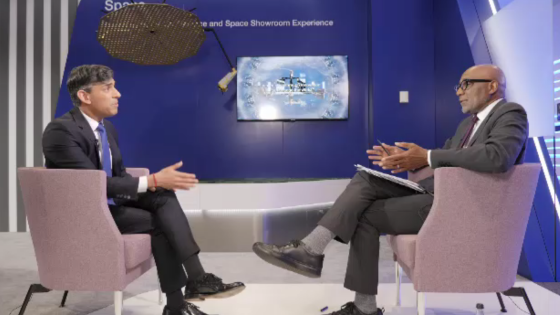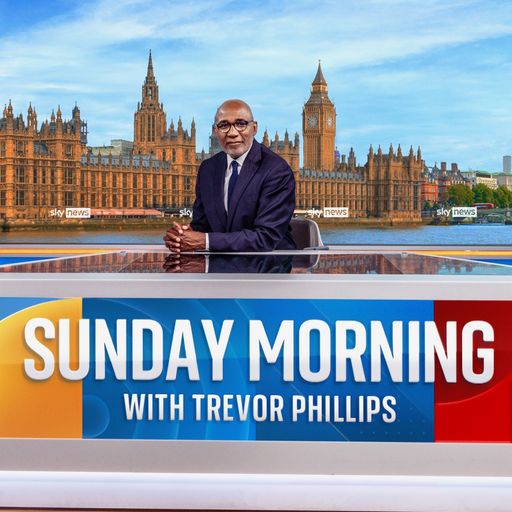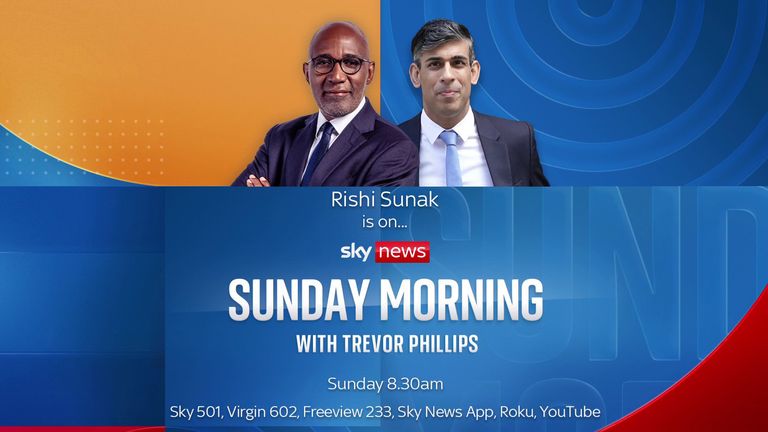I’ve known Rishi Sunak slightly for almost a decade, having first met him after he penned a thoughtful, comprehensive, well-received report on Britain’s minority communities, which I’d say is still the best of its kind.
Sitting down to interview him in a state-of-the-art defence facility this week, I could still see the same energetic, likeable problem solver that I met back then, even if he’s now surrounded by the prime ministerial cavalcade of aides, security and media.
That Peloton and fasting regime are clearly doing their job. He’s keen to show his detailed grasp of the situation, whether that’s welfare reform, defence or migration. It’s easy to see why he shone in Silicon Valley and thrived in the Treasury.
However, in the political world he chose, there’s a downside to being highly intelligent, disciplined, and super-focused on delivery, as they might say in California.
He betrays frustration with what he – not wholly unjustifiably – sees as a media obsession with polls and presentation.
Unfortunately, as Enoch Powell once pointed out, a politician who complains about journalists is like a sailor who doesn’t much fancy being at sea.
He rightly points out that it’s his job to make hard choices – for example, funding the defence budget even if it’s at the expense of schools and hospitals.
But a political leader should also know that what follows is an even harder job: to cajole the electorate into supporting that choice – and the voters aren’t always governed by the logic of the computer.
So far, the Tory leader has yet to persuade the public to see the virtue of the plan he mentions several times in every public appearance.
👉 Listen above then tap here to follow Electoral Dysfunction wherever you get your podcasts 👈
His party languishes 20 points adrift of Labour, and despite a flurry of policy announcements in recent days, the Tories seem heading for a drubbing in next week’s mayoral and council elections.
He’s lost six by-elections and looks certain to lose another this week.
Undoubtedly some of the problem is the party he leads; most of the by-elections were caused by what used to be called “conduct unbecoming” – financial or sexual shenanigans – by his own MPs.
He isn’t being helped by being a young PM with five living predecessors from his own party. He’s recruited one – David Cameron – to his administration, but there are still three who are never slow in pointing out how they would have done things better.
But even many loyal supporters are beginning to ask if the problem for the Tories is not the followers, but the leader.
There is no doubt that Sunak is a huge contrast to his immediate predecessors. His private life seems uncomplicated and joyous, and despite never having qualified as an accountant, he’s unlikely ever to cause Truss-level panic in the markets.
Read more:
Sunak does not rule out July general election
What impact will bill have on immigration?
Sunak staking premiership on Rwanda flights plan
But political missteps keep coming. Even in our interview, it may have been right to say that the new flow of illegal migrants into Ireland is some kind of proof that the threat of deportation to Rwanda is beginning to bite.
But to position Ireland’s discomfort at our exporting asylum seekers to the Republic is, at the very least, undiplomatic.
Perhaps, as one senior Tory parliamentarian said to me this week, Rishi Sunak should have remained in his former post, and been remembered as the chancellor who saw us through COVID, then steered us to economic stability.
The danger now is that, unless he stages an unlikely turnaround in the Tories’ fortunes, he will go down in history as the prime minister who took his party into a lengthy spell in the wilderness against a Labour opposition that no one would describe as inspiring.
Watch Rishi Sunak’s full interview on Sunday Morning with Trevor Phillips at 8.30am
Source Agencies




